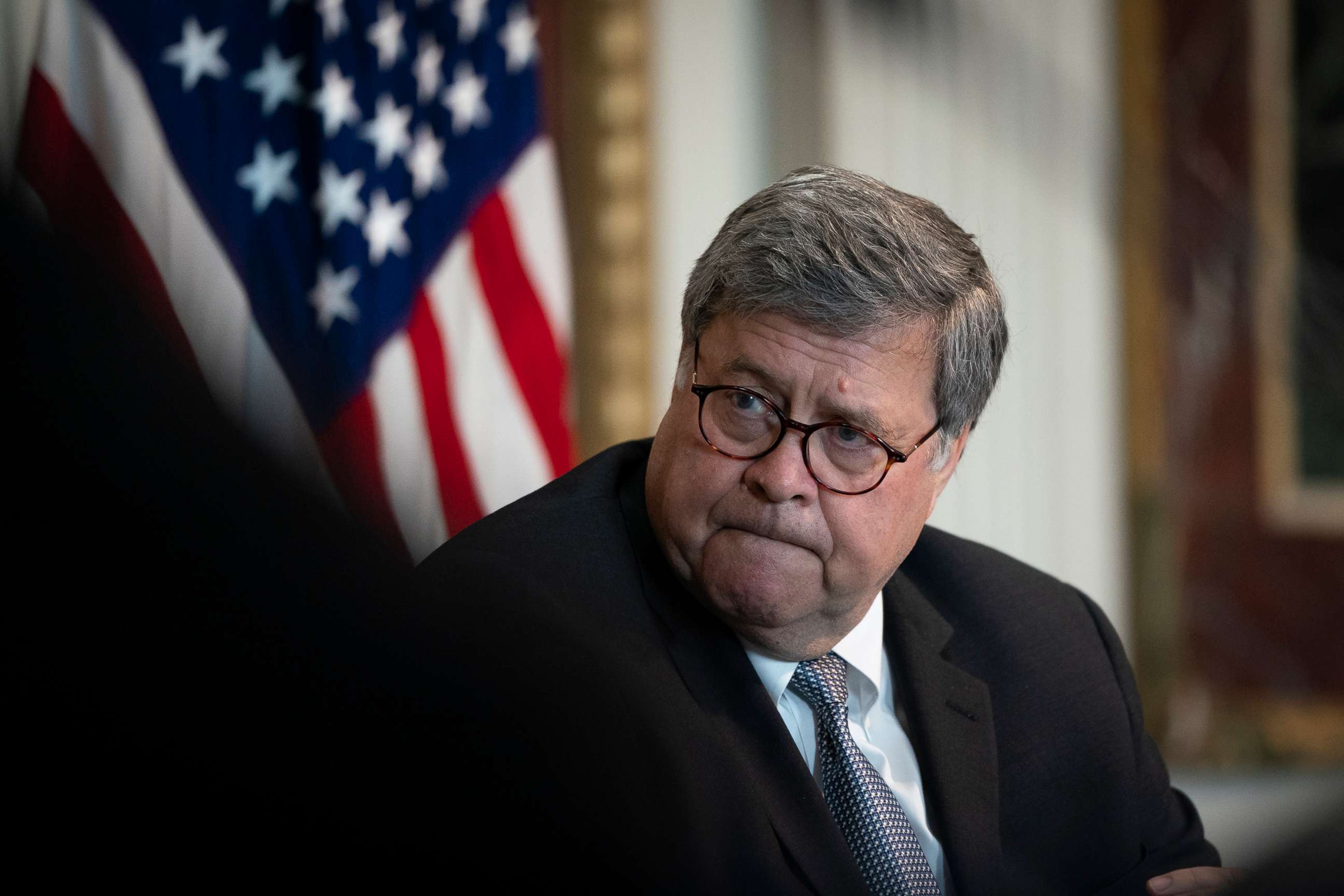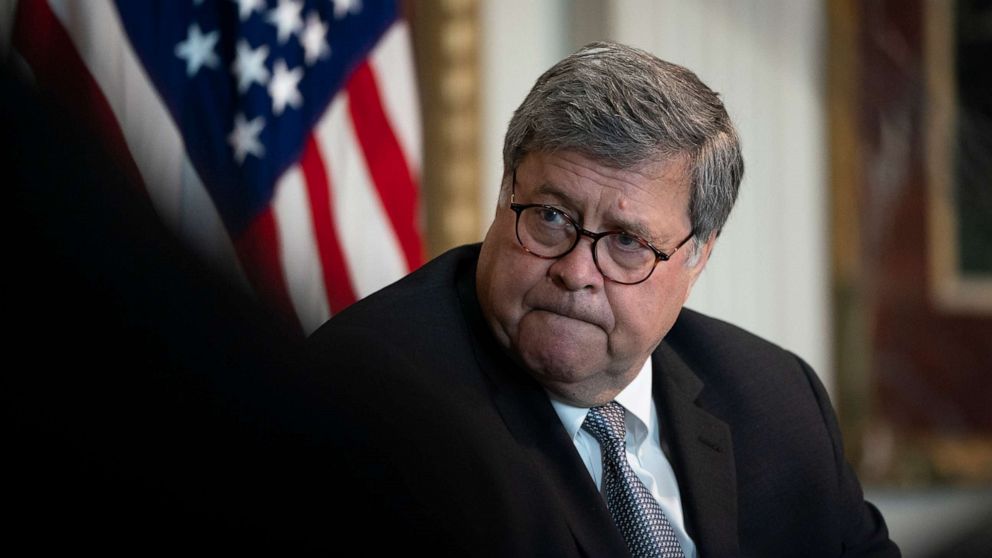Former FBI lawyer to plead guilty in Trump-Russia probe review
Former FBI lawyer Kevin Clinesmith is expected to plead guilty Friday after admitting that he doctored a document used in the application process authorizing continued surveillance against a former Trump campaign aide -- part of the first criminal case brought by U.S. Attorney John Durham in his investigation examining the origins of the Russia probe.
Department of Justice Inspector General Michael Horowitz had previously outlined Clinesmith's conduct in his report released last year examining the Russia investigation, and referred Clinesmith to the DOJ for prosecution after finding he had altered an email from the CIA that was used by the government in the final FISA renewal application authorizing surveillance of former Trump aide Carter Page.
According to a criminal information filing made public Friday, Clinesmith will plead guilty to one felony charge for making false statements.
"He will be pleading guilty," Clinesmith's attorney Justin Shur told ABC News in a statement Friday. "Kevin deeply regrets having altered the email. It was never his intent to mislead the court or his colleagues as he believed the information he relayed was accurate. But Kevin understands what he did was wrong and accepts responsibility."
The news of Clinesmith's plea was first reported by the New York Times.
The first FISA application targeting Page was first approved in October of 2016 and signed by then-Deputy Attorney General Sally Yates. The first renewal came in January of 2017 under Yates’ signature, the second came in April of 2017 signed by Acting Attorney General Dan Boente and third and final renewal application was filed under the signature of Deputy Attorney General Rod Rosenstein in June of 2017.
Clinesmith’s alteration only impacted that final renewal application in June of 2017 and was not relevant to the earlier FISA warrants. Horowitz's report last December outlined numerous errors and omissions by the FBI agents who handled the applications for Page, and the DOJ subsequently declared the final two applications were, including the one implicating Clinesmith, while declining to take a position on the first two applications.
The criminal information filing does not include any allegation that Clinesmith's decision to alter the document was related to any bias against President Trump specifically or part of a broader effort to undermine his presidency.
Attorney General Barr last night appeared to preview Clinesmith's plea in an appearance on Fox News host Sean Hannity's show Thursday evening, which he described as "not an earth-shattering development" for Durham's investigation but "an indication that things are moving along at the proper pace as dictated by the facts in the investigation."
Barr's announcement came just hours after President Trump signaled he's impatient about the lack of action taken by the Justice Department against his political opponents.
"We're not going to do anything inappropriate before the election but we're not being dictated to by this schedule -- what's dictating the timing of this are developments in the case," Barr said. "And there will be developments tomorrow -- there will be a development in the case. You know, it's not an earth-shattering development but it is an indication that things are moving along at the proper pace as dictated by the facts in the investigation."
It's unclear, however, whether Clinesmith's plea will satisfy Trump or those on the right who have demanded charges against more senior officials involved in launching the Russia investigation.
Trump in an interview with Fox Business Network host Maria Bartiromo Thursday said Barr's reputation as attorney general would hinge on the results of Durham's investigation.
“I hope he’s doing a great job, and I hope they’re not going to be politically correct,” Trump said. "Bill Barr can go down as the greatest attorney general in the history of our country, or he can go down as an average guy. We’ll see what happens."
Responding directly to Trump's comments in his interview with Hannity, Barr said, "if I was worried about being politically correct, I would not have joined this administration."

Durham's last public statement during his investigation was in December of last year, when he and Barr following the release of Horowitz's report into the origins of the Russia investigation said they disagreed with Horowitz's assessment that the investigation was launched with proper cause.
Barr's recent comments on how he plans to handle Durham's findings have caused increasing alarm among Democrats, who have argued he will seek to use the investigation to benefit Trump politically in the months and weeks leading up to the November 3 election.
While Barr has repeatedly insisted he will take no action based on political considerations, he has at the same time set down Election Day more recently as a benchmark for when he hopes to reveal some of what Durham has uncovered.
"We're all aware of the calendar and, you know we're not going to do anything for the purposes of affecting an election," Barr said in an interview with conservative commentator Buck Sexton Wednesday. "But, you know, we are trying to get some, some things accomplished before the election."
Barr has also suggested Durham's investigation has faced delays in part because the COVID-19 crisis has made it difficult to impanel grand juries which would issue subpoenas for witnesses or indictments.
Previously, Barr has taken umbrage when President Trump openly weighed into criminal matters before his department.
Barr's Thursday tease of the latest Durham development is reminiscent of Barr's intervention in the sentencing process for Trump's longtime ally Roger Stone back in February, just hours after Trump tweeted, "Cannot allow this miscarriage of justice!"
In an interview with ABC News, Barr denied his actions were in any way connected with Trump's comments and added that Trump's tweets "make it impossible for me to do my job.”
"I cannot do my job here at the department with a constant background commentary that undercuts me,” Barr said.
In addition to his comments about Barr Thursday, Trump also distanced himself from his FBI Director Christopher Wray, who he said has not recently been cooperative enough with Republican lawmakers demanding more documents related to the Russia investigation's origins.
"Christopher Wray was put there. We have an election coming up," Trump said. "I wish he was more forthcoming, he certainly hasn't been. There are documents that they want to get, and we have said we want to get. We're going to find out if he's going to give those documents. But certainly he's been very, very protective."
Trump added Wray was put in his job "by a certain person," but Trump himself nominated Wray for the position after his firing of former FBI Director James Comey, saying in a statement at the time that Wray "is an impeccably qualified individual, and I know that he will again serve his country as a fierce guardian of the law and model of integrity."




